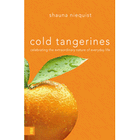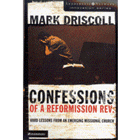As a freelance book editor, I edit dozens of manuscripts every year. For example, in 2009, I worked on forty-three books. Most of them were really good reads—some of them are bestselling, amazing reads!—but all of them taught me something and helped me grow as a Christian, as a reader, as a person. And of course, the privilege of getting to know the authors I work with is priceless.
*Note: None of the books I edited are on this list. Though I’ve worked on some truly great books this year, including them among my favorites would not only seem self-serving, but I couldn’t possibly pick one author over another. They’re all wonderful! :-)
Classics
Eyes to
 See, volumes 1 and 2, Bret Lott
See, volumes 1 and 2, Bret LottIf you want to read the classics but don’t have a lot of time to devote to lengthy, 19th-century novels, you’ll love these compilations! Bret Lott, editor and New York Times bestselling author, has compiled these two collections of “enduring stories that challenge and inspire.” Each chapter is a short story or chapter of a well-known book that will give you the richness and diversity of classic authors such as Leo Tolstoy, G.K. Chesterton, Fyodor Dostoyevsky, Charles Dickens, and Flannery O’Connor, to newer voices like John Updike, Frederick Buechner, and Helen Norris.
A Wrinkle in Time, Madeleine L’Engle
I can’t believe that I didn’t read this book when I was in school. How did I pass up such a gem? If you haven’t read A Wrinkle in Time, no matter your age, I highly recommend it. Though it can be read allegorically—and has much insight into the human condition and the nature of God’s truth—it’s also an enchanting story of love, longing, and loyalty.
The Giver, Lois Lowry
Memoir
Cold Tangerines: Celebrating the Extraordinary Nature of Everyday Life, Shauna Niequist
 I stumbled upon this book on a clearance rack and honestly wasn’t expecting much from this author’s debut memoir—but I was pleasantly surprised! Cold Tangerines is a “shameless appeal for celebration,” says Niequist, and each chapter is flavored with vulnerable, poignant insights that showcase the myriad ways God infuses our everyday, messy, fragile lives. I laughed out loud at "Basement" (yep, we all have rooms that only our best friends are allowed to see) and related to many of her stories of friendship, love, and loss. I’m already looking forward to her sophomore book, due next fall.
I stumbled upon this book on a clearance rack and honestly wasn’t expecting much from this author’s debut memoir—but I was pleasantly surprised! Cold Tangerines is a “shameless appeal for celebration,” says Niequist, and each chapter is flavored with vulnerable, poignant insights that showcase the myriad ways God infuses our everyday, messy, fragile lives. I laughed out loud at "Basement" (yep, we all have rooms that only our best friends are allowed to see) and related to many of her stories of friendship, love, and loss. I’m already looking forward to her sophomore book, due next fall. An American Childhood, Annie Dillard
From the man who chronicled his reading of the entire Encyclopedia Britannica (The Know-It-All) comes one of the most hilarious books I’ve read in years. Make no mistake: Jacobs is not a religious man. He is a New York Jewish agnostic who describes himself as Jewish “in the same the way the Olive Garden is an Italian restaurant.” He decides to follow the laws and rules of the Bible, beginning with the Old Testament, for one year. He starts by growing a beard and chronicles every itchy moment. I was amused as Jacobs obsessed over literal interpretation of Bible verses. And I laughed hysterically when his menstruating wife got so mad she went around the house and sat on all the furniture, thus rendering everything “unclean.” In this book, you’ll meet a fascinating array of Jewish rabbis, Christians of every stripe, and Jacobs’ friends and neighbors who help him (or harass him) along this ambitious, memorable journey.
Theology
The Reason for God: Belief in an Age of Skepticism, Tim Keller
The Prodigal God: Recovering the Heart of the Christian Faith, Tim Keller
Passionate Conviction: Contemporary Discourses on Christian Apologetics, ed. Paul Copan and William Lane Craig
Church Planting/ Ministry
Confessions of a Reformation Rev.: Hard Lessons from an Emerging Missional Church, Mark Driscoll
 My husband is an experienced church planter, so I thoroughly enjoyed pastor Mark Driscoll’s engaging story of starting Mars Hill Church in Seattle. As a church planting wife, I could relate to many of Driscoll’s experiences of the failures, frustrations, and just plain messiness of planting a church that is faithful to the gospel of Christ in this post-Christian culture. I appreciate how Driscoll not only shares the story of Mars Hill but also presents lessons he learned as well as practices that worked. This is a valuable resource for any church planter or pastor.
My husband is an experienced church planter, so I thoroughly enjoyed pastor Mark Driscoll’s engaging story of starting Mars Hill Church in Seattle. As a church planting wife, I could relate to many of Driscoll’s experiences of the failures, frustrations, and just plain messiness of planting a church that is faithful to the gospel of Christ in this post-Christian culture. I appreciate how Driscoll not only shares the story of Mars Hill but also presents lessons he learned as well as practices that worked. This is a valuable resource for any church planter or pastor. Change Your Church for Good: The Art of Sacred Cow Tipping, Brad Powell *
(*Full disclosure: I edited an updated version of this book, but I’m commenting on the original hardcover I did not work on.) In this book, pastor Brad Powell shares his experiences of transitioning an old (and, at the time, culturally irrelevant) church into the vibrant, effective ministry of North Ridge Church in Detroit. His premise is that the church is the hope of the world—when it’s working right. Though his insights are directed to pastors who are transitioning small churches, there is much that applies to church planting as well. A recommended read for any church planter or pastor who wants an effective, relevant church.
Christian Living
Fearless: Imagine Your Life without Fear, Max Lucado
Breathe: Creating Space for God in a Hectic Life, Keri Wyatt Kent
As a mother of three who juggles kids, church planting, an editing career, friends, and a never-ending to-do list, this book came along at just the right time for me. This light, easy read reminds women that our value isn’t found in what we do but in who we are. Keri’s decision to scale down her family’s activities affirmed my commitment to keep things simple with our children. If you are feeling weary and burdened, I encourage you to pick up this book, slow down—and breathe.
Fiction
 Kate DiCamillo is becoming one of my favorite authors. From her classics The Tale of Desperaux and Because of Winn-Dixie, to her lesser-known but still exquisite The Tiger Rising and The Magician’s Elephant, DiCamillo has the rare ability to write children’s stories that appeal to readers of all ages. Of all her books I’ve read so far, The Miraculous Journey of Edward Tulane is my favorite. This endearing tale of a china rabbit who, through a series of extraordinary events, learns how to love brought me to tears. If you like The Velveteen Rabbit, you will love The Miraculous Journey of Edward Tulane. It’s a modern classic that has earned its way onto every child’s (and adult's) bookshelf.
Kate DiCamillo is becoming one of my favorite authors. From her classics The Tale of Desperaux and Because of Winn-Dixie, to her lesser-known but still exquisite The Tiger Rising and The Magician’s Elephant, DiCamillo has the rare ability to write children’s stories that appeal to readers of all ages. Of all her books I’ve read so far, The Miraculous Journey of Edward Tulane is my favorite. This endearing tale of a china rabbit who, through a series of extraordinary events, learns how to love brought me to tears. If you like The Velveteen Rabbit, you will love The Miraculous Journey of Edward Tulane. It’s a modern classic that has earned its way onto every child’s (and adult's) bookshelf.The Help, Kathryn Stockett
On Reading
The Hero’s 2 Journeys, Michael Hauge and Christopher Vogler (CD set)
As a book editor, I’m often asked, “How do you know what to change in a book? Do you just fix typos?” Oh my, no. It’s much more than typos, I explain. It’s more like listening to a symphony and hearing notes that are dissonant, out of place. Sometimes you can just fix a note or two; other times you have to reorganize an entire movement so that the melody ring through more effectively. But when I listened to The Hero’s 2 Journeys (okay, it’s a CD set, not a book), I realized the authors were describing in detail what I had been doing by instinct all these years. Though these lectures focus on writing screenplays, Hauge and Vogler lay out a template for storytelling that applies to writers of all genres. If you are, or ever plan to be, a writer, I strongly recommend listening to this writer’s workshop. I promise, your editor will be grateful you did!
The Art and Craft of Storytelling: A Comprehensive Guide to Classic Writing Techniques, Nancy Lamb
“Storytelling is an art. But it is also a craft.” So says Nancy Lamb, encouraging writers not only to use their instinct, but to develop the skills and technique required to create an effective story. As an editor, I love this: “Storytelling rules aren’t restrictions. In fact, a basic understanding of the rules frees you to do your job as a writer.” (And all the editors in the room said, AMEN!) Whether you’re a published author or an aspiring one, this book will help you refine the art—and craft—of storytelling.
The Art of War for Writers: Fiction Writing Strategies, Tactics, and Exercises, James Scott Bell
This little red book is a battle plan to achieving publishing victory. Drawing humorous and insightful parallels from Sun Tzu’s The Art of War, novelist James Scott Bell lays out tactics ranging from developing ideas, building characters, and crafting dazzling dialogue… to battling self-doubts, coping with unrealistic expectations, and dealing with rejection. With short, pithy chapters, this book is easy to read, full of practical insights, and well worth your time.



